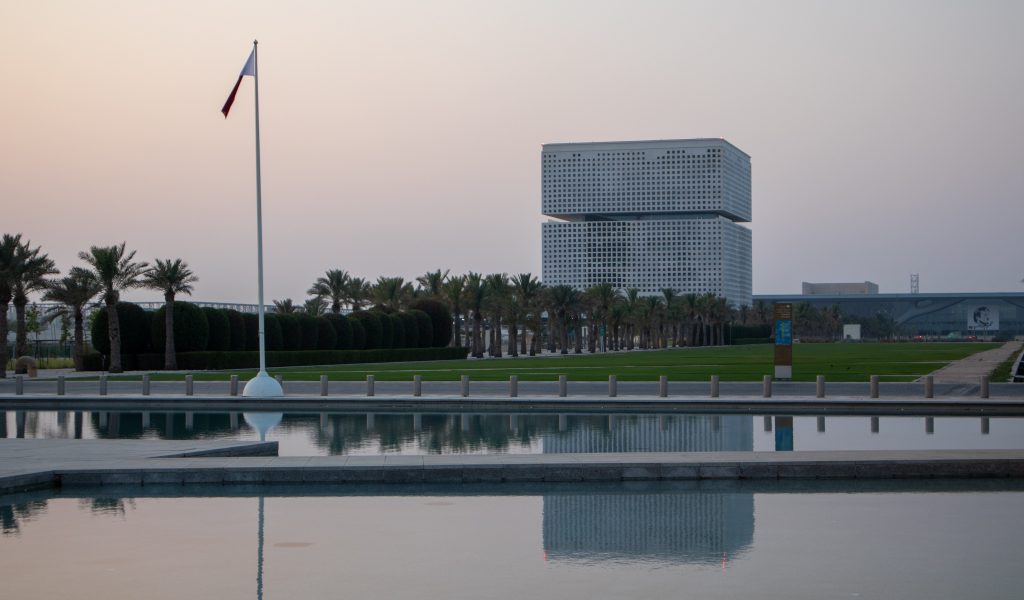The effects of the 2022 World Cup in Qatar

Toby Davies investigates the controversies surrounding the 2022 Qatar World Cup and the consequences of the world’s reaction to the spectacle of football.
Qatar was always a contentious choice for the 2022 World Cup. With a dubious election process on the back of our minds and a poor Human Rights record, it was destined to be controversial. Yet, as the competition hurtles into full swing, an even greater battleground of condemnation versus endorsement, morals versus money, and freedom versus nonfreedom has been propelled to the forefront of the media and the attention of Non-governmental Organisations. What comes after is anyone’s guess, but we can begin to pose questions – of which the answers will soon be revealed.
Prior to the World Cup, there has been a decade of whispers. Growing reports on the poor treatment of a massive migrant worker population of 1.7 billion (Amnesty International) have exposed poor living conditions, withheld salaries, and unenforced labour rights. Perhaps most disturbing of all is the 2021 Guardian report which found that 6,500 workers had died during the construction of the stadia, hotels, and other related infrastructure projects. Another issue dulling support for Qatar is their stance on LGBTQ+ rights, which criminalises same-sex marriage, with Human Rights Watch reporting on mistreatment in detainment, including beatings.
In the case of the 2022 World Cup, money overcame morals, as it often does
From the outside, it doesn’t look good for Qatar; the treatment of workers is beyond scandalous, and a lack of social freedoms and poor enforcement of human rights will surely harm the tournament’s success. Before discussing the reactions and effects of the 2022 World Cup, it is important to look back for moment – how did we get here? How has the international community allowed this to happen? The short answer: too much money.
Qatar is a gas and petroleum giant, with an oil reserve exceeding 25 billion barrels – combine this with a small population, and you have a country with the highest GDP per capita. This means Qatar has what international governments want – natural resources – and plenty of wealth to show for it. Enough wealth to tempt the hearts of FIFA’s officials into corruption? It certainly seems that way. After a string of indictments, the US Department of Justice claimed in 2020 that Qatar had indeed bribed FIFA officials. And so, in the case of the 2022 World Cup, money overcame morals, as it often does.
The question remains – how have the international community reacted? A tumultuous mixture of celebrity endorsement and condemnations sparked the attention of popular media in the run up. For example, celebrities such as Rod Stewart and Dua Lipa, have publicly denied offers to perform, based on Qatar’s Human Rights abuses. On the other side, the most prominent example is David Beckham, whose support for Qatar has seen him face widespread criticism. And perhaps more surprisingly, Morgan Freeman was front and centre for the 2022 opening ceremony – for such a widely respected figure holding multiple accolades such as the Doctor of Humane Letters, to be associated with Qatar is contentious to say the least – and somewhat disappointing.
Although such celebrities have some level of influence, it is the people – the fans – who will determine Qatar’s success or failure of this World Cup. In a recent poll, 92% of English fans said that a country’s human rights record should be a ‘major factor’ in determining in its suitability to hold a world cup – and yet, in the same poll, 78% claimed they still planned on watching it. Clearly, there is a separation between opinion and action as far as the public is concerned – most are aware of the prior-mentioned controversies. Yet as the World Cup progresses past the group stages, it’s all football, football, football.
The epicentre of discussion now lies in whether or not it’s coming home – not in the lives lost, the people oppressed, or the ludicrous amounts of money stained with corruption. It is fairly apparent that Qatar wishes to ‘sportswash’, generating a spectacle to distract, and alter the general narrative around the nation. Whether or not this is allowed to happen could have broad social and geopolitical implications going forward. When this winter World Cup draws to a close, Qatar will either be irreversibly exposed, or legitimised in the international community. The eyes of the world have never before been so fixed on Qatar – however, when the attention moves somewhere else, will we merely forget the controversies? If so, the ramifications could be very dangerous – states with similar practices, such as Saudi Arabia will be watching very closely. Without speculating too far, it is easy to imagine a tightening of the screws of oppression, if such clear infringement of Human Rights stands the test of global attention.
The eyes of the world have never before been so fixed on Qatar – however, when the attention moves somewhere else, will we merely forget the controversies?
What do we value more? A bit of football on a Friday night, or the protection of freedoms? And what do international governments prioritise? Global enforcement of human rights, or heavy pockets and plenty of oil? The answers to these questions are unfolding before our eyes, and I fear the shape they are taking.


